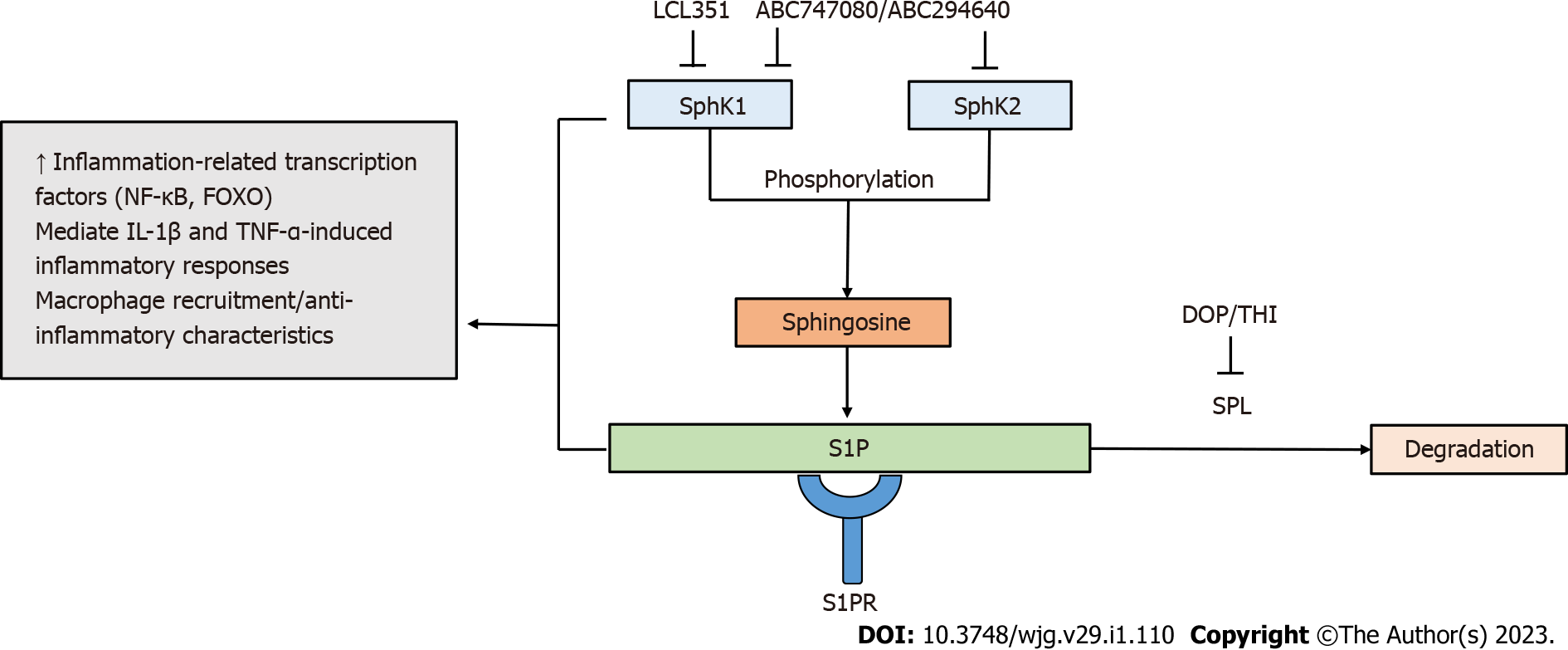Copyright
©The Author(s) 2023.
World J Gastroenterol. Jan 7, 2023; 29(1): 110-125
Published online Jan 7, 2023. doi: 10.3748/wjg.v29.i1.110
Published online Jan 7, 2023. doi: 10.3748/wjg.v29.i1.110
Figure 2 Targeting sphingosine-1-phosphate metabolism by sphingosine-1-phosphate modulators.
Sphingosine kinases (SphK1/SphK2) phosphorylate sphingosine to form sphingosine-1-phosphate (S1P). S1P degradation is mediated by sphingosine phosphate lyase. Components of S1P metabolism are involved in inflammatory responses. The SphK/S1P receptor network is associated with the induction of inflammation-related transcription factors, including nuclear factor-kappa B and forkhead box O. The SphK/S1P axis has been shown to mediate inflammatory responses induced by pro-inflammatory cytokines interleukin 1-beta and tumor necrosis factor-alpha. Increased activity of SphK1 modulates the recruitment of macrophages and the manifestation of their anti-inflammatory properties. S1P modulators targeting components of S1P metabolism contribute to the regulation of inflammatory immune responses. FOXO: Forkhead box O; IL: Interleukin; TNF-α: Tumor necrosis factor-alpha; NF-Κβ: Nuclear factor-kappa B; S1P: Sphingosine-1-phosphate; SPL: Sphingosine phosphate lyase.
- Citation: Tourkochristou E, Mouzaki A, Triantos C. Unveiling the biological role of sphingosine-1-phosphate receptor modulators in inflammatory bowel diseases. World J Gastroenterol 2023; 29(1): 110-125
- URL: https://www.wjgnet.com/1007-9327/full/v29/i1/110.htm
- DOI: https://dx.doi.org/10.3748/wjg.v29.i1.110









